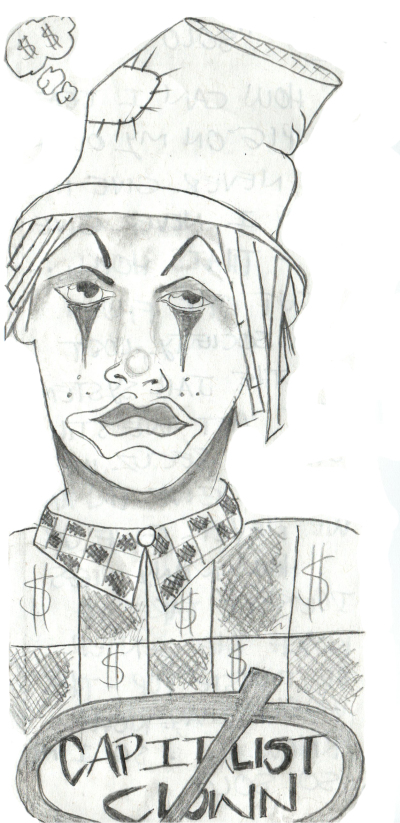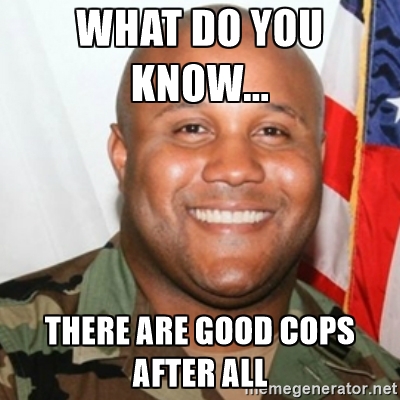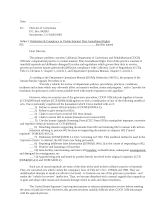
Tactics for Dealing with Correctional Officers
Currently on a day to day we are faced with dealing with situations that are not part of our sentence. For me I have to decide what approach or tactics I can use dealing with correctional staff whose behavior has escalated from being rude to disrespectful and retaliative. Here, in Washington, Correctional Officers (COs) try to gain popularity amongst their peers by doing disrespectful things and abusing their authority in order to impress each other. They do things like slam your cuff door, kick your door while you sleep, and put your handcuffs on too tight. I’ve seen officers tampering with an offender’s food. This causes me anxiety. I suffer from panic attacks and my mental stability can’t handle the paranoia.
It’s like figuring out how to deal with a high school bully. I’ve completed courses in Non-Violent Communication (NVC) and also dispute resolutions. I’ve taken classes on human relations and was a very popular person out in the community where I am from. The CO is a new kind of bully. Similar to a bad boss you can choose to submit to their abusive ways, you know, favoritism, laziness, lying to offenders, slacking off, pretending as if their job is hard and stressful. You can become more passive and avoid conflict and simply stay out the way. Take the disrespect with a smile, do your time, and go home. My father told me to do this, to succumb to their oppression, do your time, and come home.
Because I’ve been sentenced to 126 months to life they have extended my sentence 3 times due to infractions and some made up reason concerning my mental health. I am a convicted sex offender guilty of rape in the 2nd degree domestic violence. A crime I committed against the mother of my child. Having said that, I understand the ideology that a sex offender is a pathetic human being deserving of whatever treatment he or she has coming. However, with crime, and I mean any crime now, there are people who will suffer indirectly. Families and loved ones who care get victimized when an offender is in prison and receives unfair, cruel and unusual punishment, abuse and neglect and these are people living the right way.
For a criminal to just avoid conflict, do his time and get out, is far more damaging because you left that offender in a cycle of behavior that leads to more crime and often someone’s death. So no I don’t choose to just do my time and go home. I continue to make a difference, that’s how I do my time. If god wants me to be in here for 20 more years so be it. I am helping the men in here internalize change. I may have stopped a family member or loved one from harm by providing new perspectives and ideas that change minds and unlock potential.
So these five tactics I’ve come up with have nothing to do with avoiding. Just providing solutions.
- Before deciding to deal with any issue check your intentions. Deciding whether the issue is detrimental or not and it has nothing to do with your ego.
- Learn the 7 habits of highly effective people. Use them, practice them with your comrades. Seek first to understand all angles, give little of your reasoning but get all of theirs. That way you can punch holes in their lies and stories.
- Push paperwork, write grievances and kites, use them as documentation. Because you never know when it may go to a lawsuit. Of course, that is not the goal, but fairness and equal protection treatment is.
- Transfer power, officers tend to make a lot of mistakes but be considerate of their intentions. A lot of times it’s because they haven’t been told something or simply feel discomfort. You can ease the tension by helping them see the bigger perspective simply by asking questions. So that way they can come to their own conclusions.
- Be reasonable, listen to reason and compromise. In the end it is all about respect. You will have officers who are flat out disrespectful. A lot of them feel they have to operate this way in order to get complacence and respect. So you can’t take it personal but you should handle all your issues at the lowest form always.
MIM(Prisons) responds: We want to applaud this comrade’s commitment to do more than just do eir time, instead trying to transform the consciousness of others while locked behind bars. There are a few things in here we want to comment on. First, many will criticize us for even printing something written by a sex offender, but we want to push people to consider the ideas rather than judging them based on the background of the people who put out the ideas. 2+2=4 no matter who says it. But even more importantly, someone who previously advocated that 2+2=5 can change and learn why eir previous answer was wrong. We believe the same is true of all people who commit acts against the people with sufficient self-criticism and re-education.
As far as the tactics proposed by this comrade, we agree with the points that promote checking your ego, and filing grievances and maintaining documentation. However, we have some disagreements with this writer’s proposals about how to deal with people. First, when dealing with our comrades we should not tell people to “give little of your reasoning but get all of theirs.” If this comrade is suggesting we do this with the enemy then that’s fine, but with our comrades we should be honest and straightforward about our reasoning as we seek to build unity and respect.
On the other hand we think this writer gives too much credit to officers suggesting that they can be won over through respect and consideration. While it’s true that we don’t need to start with aggressiveness and should seek to diffuse situations that might work against us, we should not fool ourselves into believing that officers will come around to our side if we just treat them nicely. The prison system is set up to put officers in a position where abuse of prisoners is encouraged. It’s not just personalities of individuals or lack of perspective that cause the problems, it’s the system itself. We need to be clear on this so that we can stay focused on the system as the enemy.










